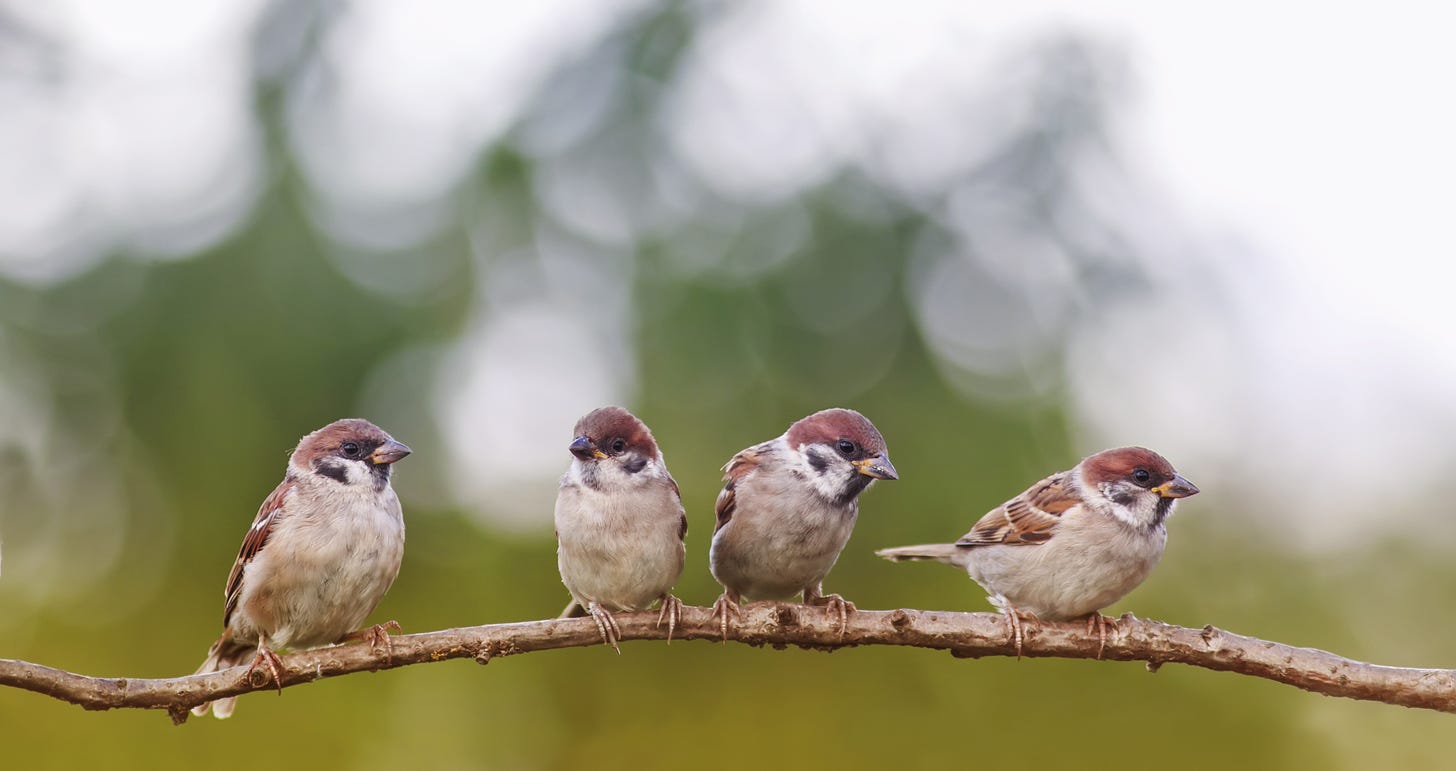Quick Hits
Daily brief research updates from the cognitive sciences
Of course love overrides everything – how could you think differently?!
Well, no it wouldn’t make sense for love to override everything – we need to be alive to love. The question though, is how do competing needs play out in our brain.
If you’re thirst and hungry, or hungry and afraid, what do you prioritise and how does the brain do this?
And what’s this got to do with love?
Well, it’s not really love but potential love (or unromantically: potential mating partner) – and in this piece of research it’s in birds, zebra finches to be precise.

In birds?
Yes, it’s not just mice in neuroscience labs. Andrea Roemer et al. of Cornell University wanted to find out how needs compete with each other in animal models. There is plenty of research into motivation for single needs but little on competing needs.
“Love” is also a bit of a stretch of the imagination, or a very human interpretation. Specifically in this case brain signals of a lone male thirsty zebra finch were measured using optogenetics (i.e. very precise measurement of neuronal activity in real time).
First they were recorded as the thirsty finch was given water and trained to recognise signals for water – but then the researcher added a female zebra finch to see what would happen.
Oh, interesting and what did happen?
First off, we know that dopamine, you will have likely heard for me previously, is triggered by small rewards such as drinking and eating. Dopamine is also considered a motivation transmitter in the brain – triggering motivation to engage in an activity such as getting said drink or food. It is also involved in addiction.
The question now is does adding an extra need, or motivation, mix up dopamine systems, or switch between them, or something else. And then what is prioritised?
…and…
And when the female finch was added to the scenario what happened is that the male zebra finch, who had been trained to recognise a signal for water, ignored the signal and this was accompanied by the dopamine signal being switched off.
So the dopamine system stopped activating to thirst?
Precisely – and it is important to understand that this is biological. We often talk of “psychological” mechanisms but here we can see that this is not “psychological”, switching to another focus, but the signalling mechanism in the brain being deactivated when a new potential reward is added.
And is this really love?
Well, no. But maybe in zebra finch terms it is. What it shows is that attraction to the other sex can trump a simple emotion such as thirst – but this may depend on how severe that other need is.
But it also neatly explain some phenomenon such as how we can ignore certain needs under certain conditions – later the finch may have felt doubly thirsty because of his brain switching from one need to another.
In this case it also shows that there was no real competition in the brain – it wasn’t different dopamine networks fighting it out with each other, rather a damping of the dopamine response in one area of the brain.
It also shows that our brains are constantly rebalancing our needs according to current environmental conditions.
And that male zebra finches prioritise crumpet over other needs
Or prioritise love!
For a deep dive into the brain and love see Your Brain on Love

Andy Habermacher
Andy is author of leading brains Review, Neuroleadership, and multiple other books. He has been intensively involved in writing and research into neuroleadership and is considered one of Europe’s leading experts. He is also a well-known public speaker, speaking on the brain and human behaviour.
Andy is also a masters athlete (middle distance running) and competes regularly at international competitions (and holds a few national records in his age category).
Reference
More Quick Hits
When Cognitive Games Do Make You Smarter
Quick HitsDaily brief research updates from the cognitive sciences ognitive games have been around for many years now – the first wave of popularity came with Nintendo’s “brain jogging” almost two decades ago now. These games have claimed that they...
How Walking Makes Some People “Super Taskers”
Quick HitsDaily brief research updates from the cognitive sciences hose of you who have followed my writing will know that I have reported regularly on the amazing benefits of exercise and walking on the brain, body, and cognition. However, though...
Older People are Better at Responding to Distress
Quick HitsDaily brief research updates from the cognitive sciences e may have some cliched ideas of older people like the grumpy or angry old man, or woman (but it is often a man). However, research continually shows the opposite. Namely that...
Guided Play Highly Effective for Learning in Children
Quick HitsDaily brief research updates from the cognitive sciences ood news for some and bad news for traditionalists in education. Some believe that starting education early and using classical and traditional learning activities is the best way...
Childhood Fitness Improves Mid-Life Cognition
Quick HitsDaily brief research updates from the cognitive sciences always find these long-term studies fascinating. Imagine launching study and not knowing what the outcomes will be for another 30 years! This is precisely what this study did. It...
The Truth of “Work Hard, Play Hard”
Quick HitsDaily brief research updates from the cognitive sciences e all know the phrase “work hard, play hard” and this drew my attention when I stumbled across some research actually looking into this - and whether this is a good thing or bad...






